Is Mexico Safe to Visit? Your Complete Guide to Travel Safety in 2024
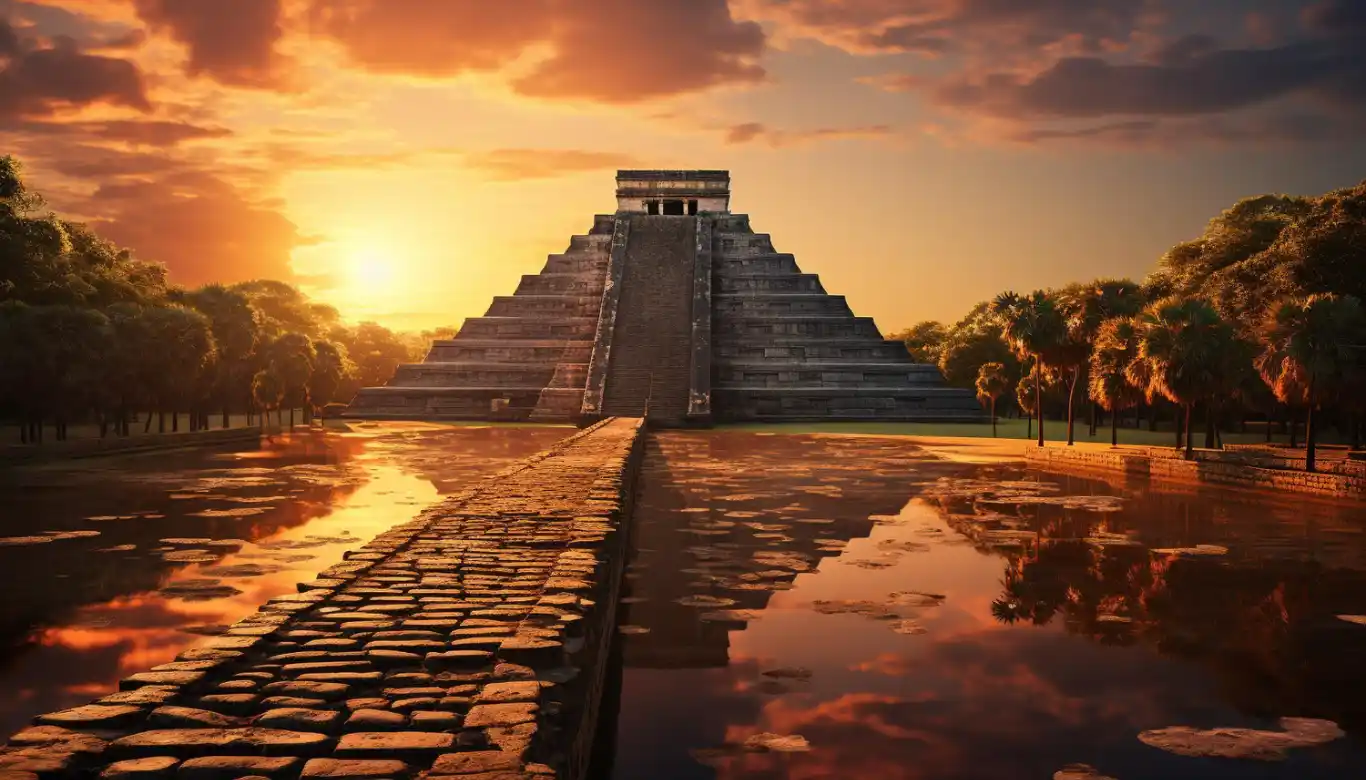
Table Of Contents
Mexico's safety landscape is highly varied, featuring both very safe destinations and areas known for higher risk.
Mérida is celebrated as one of Mexico's safest cities, exemplifying effective local security measures and a welcoming atmosphere for travelers.
Vigilant situational awareness and adopting safety measures are crucial when navigating high-risk areas, especially in cities known for drug cartel activities.
Comprehensive travel insurance and understanding the local climate, particularly hurricane season, are essential for a worry-free visit.
Is Mexico Safe to Visit in 2024? This guide cuts through the noise to offer you a clear, actionable understanding of safety across Mexico's varied landscapes. From identifying the safest cities for your getaways to handling financial safety, and from navigating crime hotspots to dealing with natural disasters, we cover it all. With a focus on practical advice and current data, we aim to empower your travels with knowledge and confidence. Discover how to safely enjoy Mexico’s adventure and culture, backed by answers to your most pressing questions.
Key Takeaways
Understanding Safety in Mexico: A Country of Contrast
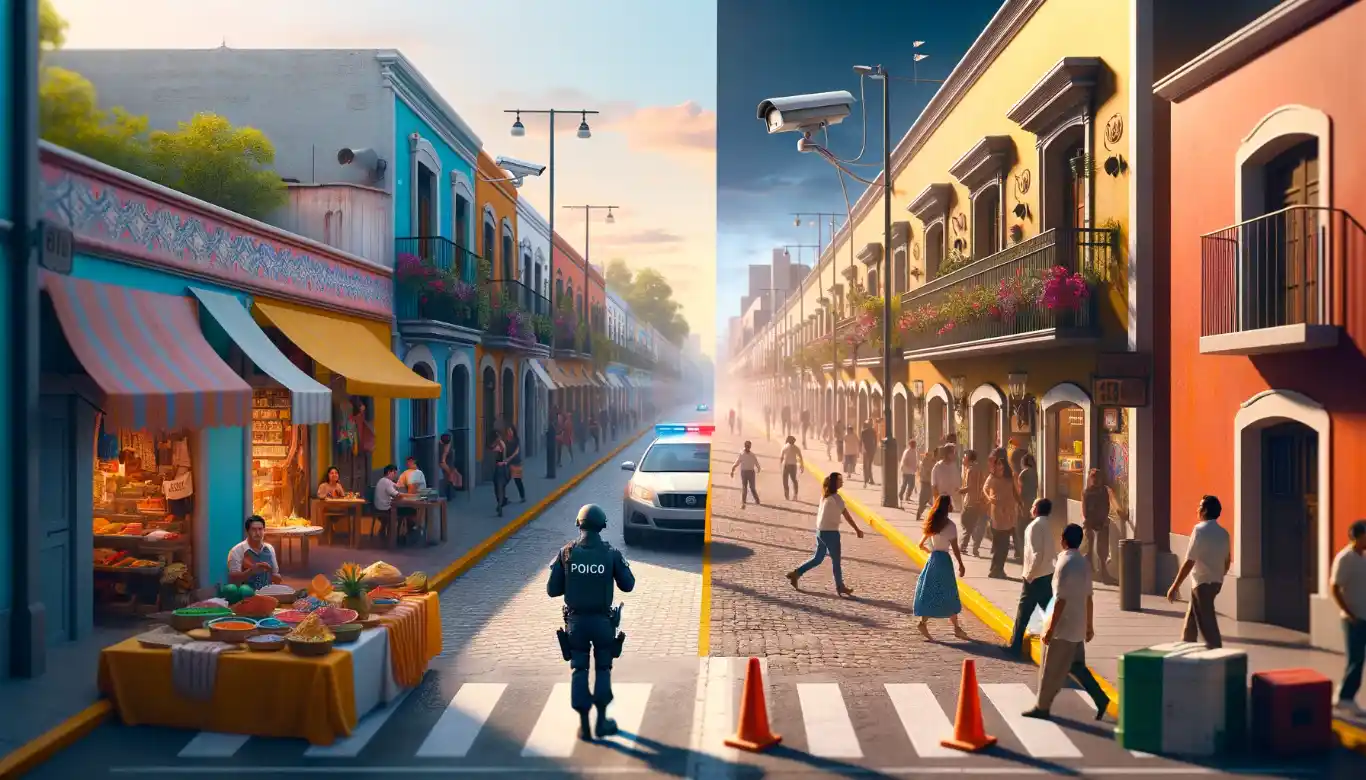
Safety in Mexico varies widely, with conditions ranging from peaceful to risky. This guide addresses that range, covering key areas such as the safest cities to visit, financial security, and the risks in areas known for crime and natural disasters.
Alarmingly, Mexico is home to nine out of the top ten most dangerous cities globally, including places like Tijuana, Acapulco, and Ciudad Juárez, which are also popular tourist destinations. The stark reality of these statistics underscores the importance of being well-informed and cautious.
In 2024, travel advisories from the U.S. Government highlight the complex safety landscape of Mexico: six states are considered too dangerous to visit, seven are flagged for travelers to reconsider visiting, seventeen require increased caution, and only two are deemed safe enough to recommend normal travel precautions. This guide aims to break down these advisories into clear, actionable advice covering various topics to help you navigate Mexico's diverse safety conditions confidently and safely.
See also our Blog Post on the Top 10 Safest Cities in Mexico.
Mexico's Safest Cities: Where to Visit for a Secure Experience
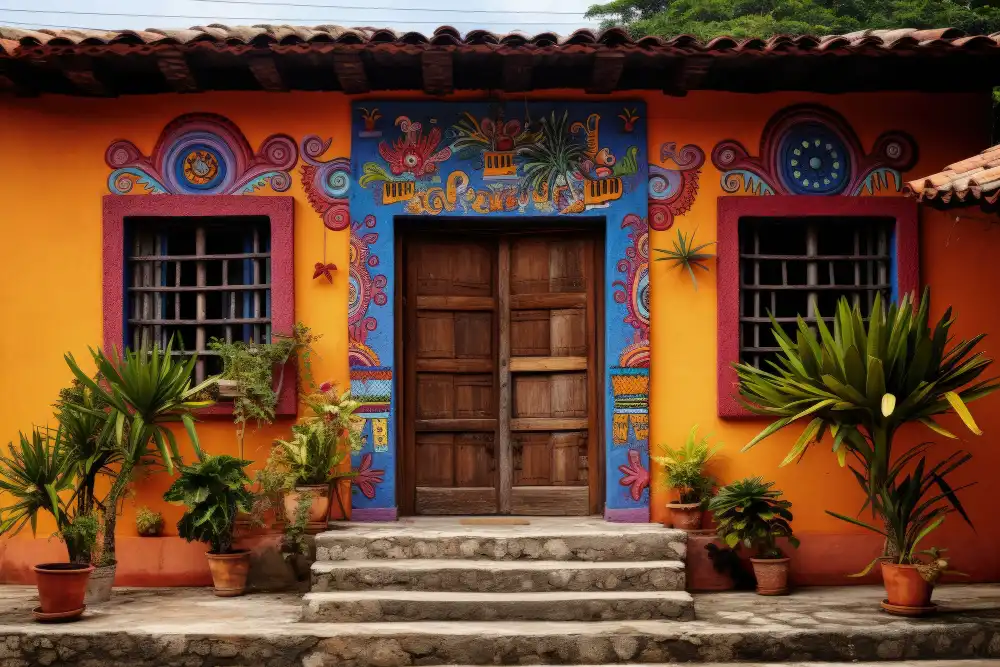
For those looking to explore Mexico with peace of mind, knowing where to set foot matters. Starting with an overview of Mexico’s safest cities, you get a well-rounded overview of the places offering a secure experience.
We spotlight Mérida, a city that stands out for its safety, and offer a curated list of serene destinations where safety and enjoyment go hand in hand.
The Best Places to Stay: Top 10 Safest Cities for a Serene Getaway
Exploring Mexico's vibrant landscapes and rich culture while ensuring safety can be a traveler's top priority. Our in-depth analysis highlights the top 10 safest cities in Mexico, offering a blend of tranquility and security for a serene getaway.
Mérida leads the pack, renowned for its low crime rates and effective local security measures. Other cities like Tulum, Playa del Carmen, and Cancun follow, each praised for their safety initiatives and welcoming atmosphere. For those seeking peace of mind alongside adventure, these destinations promise both.
Dive deeper into our comprehensive guide to discover why these cities are favored for a secure and memorable journey.
Mérida: Presenting a Model of Safety for Travelers

Mérida, celebrated for its safety, stands out as a beacon for travelers seeking tranquility and cultural immersion in 2024. With its low crime rates and a public security system bolstered by a 60% budget increase since 2018, Mérida offers an unparalleled sense of safety. This city, nestled in the Yucatan Peninsula, not only boasts fewer violent crimes but also radiates a serene atmosphere, inviting exploration of its historical treasures.
Strategic safety initiatives and community vigilance have nurtured an environment where exploration and cultural engagement flourish. For an in-depth understanding of navigating Mérida confidently, leveraging local insights, and making the most of your visit, delve into our comprehensive article on Mérida. It's your guide to embracing the safety and splendor of Mérida's streets and vibrant life.
Financial Safety: Navigating Mexico's Economy as a Traveler

Navigating financial transactions in Mexico effectively means exchanging currency at local banks or casas de cambio for the best rates and balancing the use of cash and cards—cash for smaller, everyday purchases and cards for more significant expenses.
It's crucial to stay alert to common scams such as ATM skimming and encounters with fake officials to protect your finances. Dive into our comprehensive guide for detailed strategies on secure transactions and avoiding scams, ensuring a financially savvy and safe journey through Mexico.
The Custom of Tipping in Mexico: When and How Much to Tip
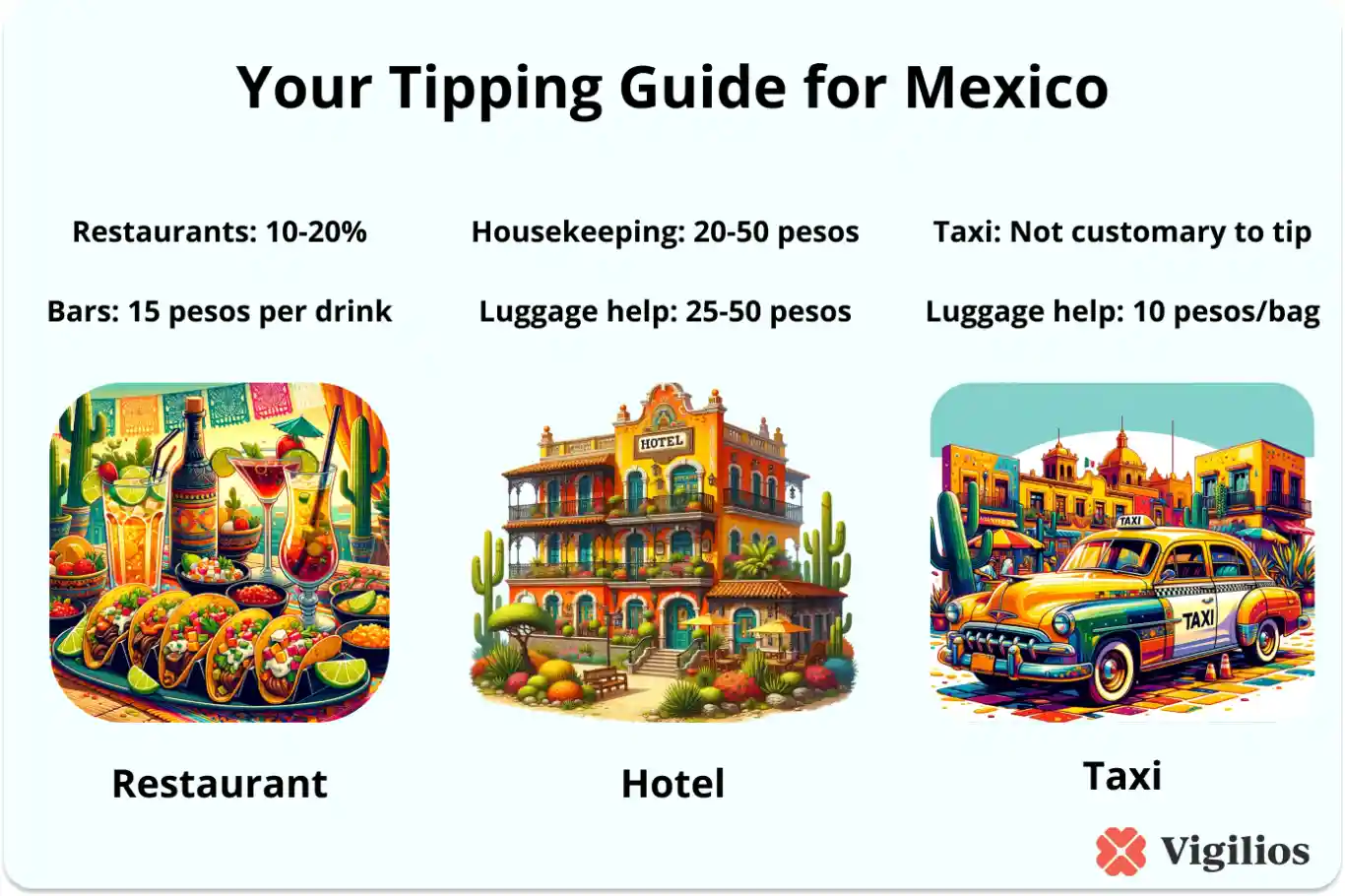
Tipping in Mexico goes beyond a mere gesture of appreciation; it's an integral part of the service industry's income. Typically, a 10-15% tip is standard across various services, reflecting the proactive and appreciative tipping culture. It's noteworthy that service charges are rarely included in bills, emphasizing the need to manually add tips.
Preferably, tips should be given in cash, directly benefiting the service worker, with small bills being the most practical for seamless transactions.
For an in-depth exploration of tipping etiquette across diverse settings in Mexico make sure to check out our Guide to Tipping: From restaurants and taxis to all-inclusive resorts and beyond, this detailed article offers the guidance needed to navigate these encounters with confidence and cultural sensitivity.
Confronting the Risks: A Realistic Look at Mexico's Safety and Hotspots of Crime
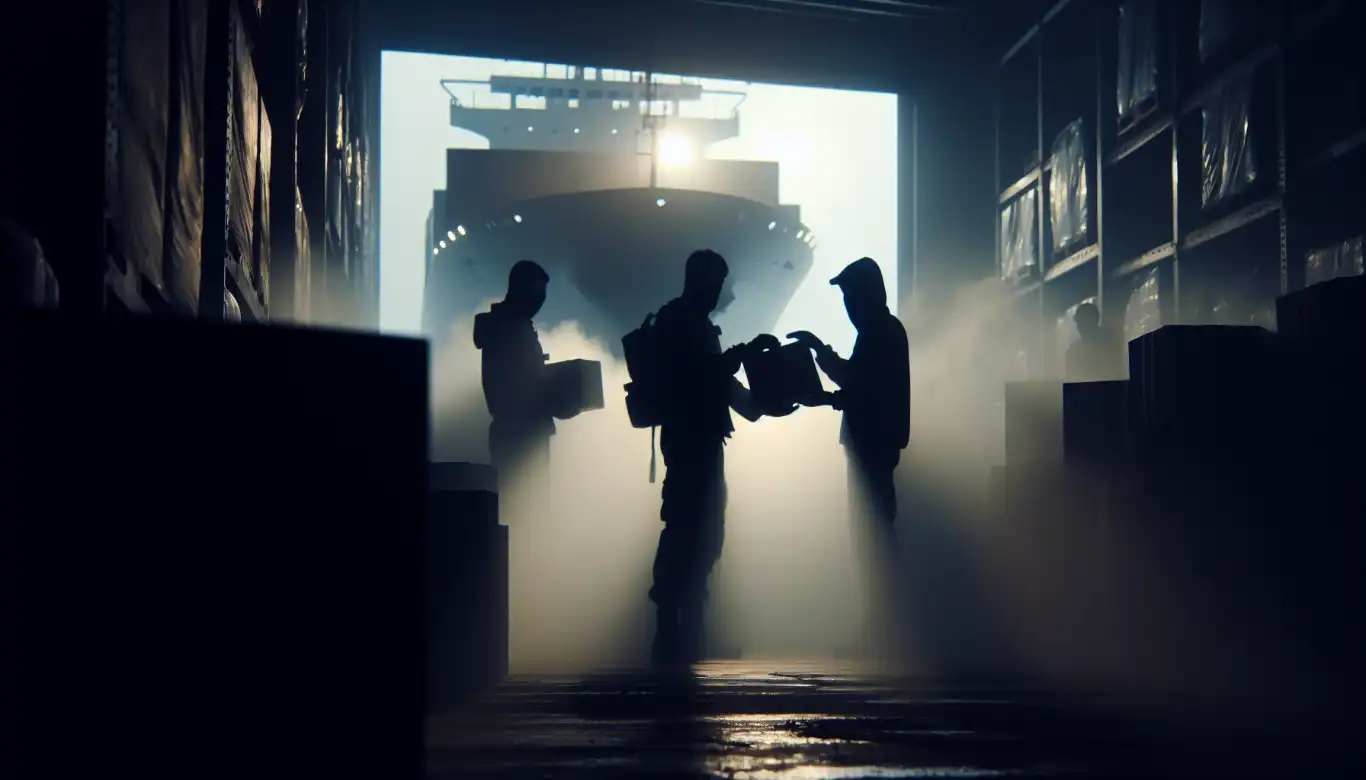
Travelers heading to Mexico are encouraged to stay informed about safety and security conditions, which can vary dramatically across different regions of the country. It's important to understand that standards of public health and safety, as well as the enforcement of these standards, may differ significantly from what one might expect based on their own country's norms.
Awareness and adherence to standard health and safety precautions can significantly mitigate the risk of illness or injury. In Mexico, the emergency number for police, medical, and fire services is “911”. Access to English-speaking operators may not be guaranteed, hence having a Spanish-speaking individual assist with the call could be beneficial.
Crime in Mexico spans from petty theft to more violent acts such as armed robbery, extortion, and kidnapping, often with a connection to cartel activity. Travelers should be particularly cautious of unauthorized checkpoints set up by criminal organizations, which can pose significant risks.
Official checkpoints, often manned by National Guard or military personnel, are also common and aim to deter criminal activity. When encountering any checkpoint, cooperation and non-confrontational behavior are key.
Demonstrations and protests are frequent and can disrupt travel; staying updated on local news and avoiding areas of unrest is advisable.
Understanding the 10 Most Dangerous Cities in Mexico
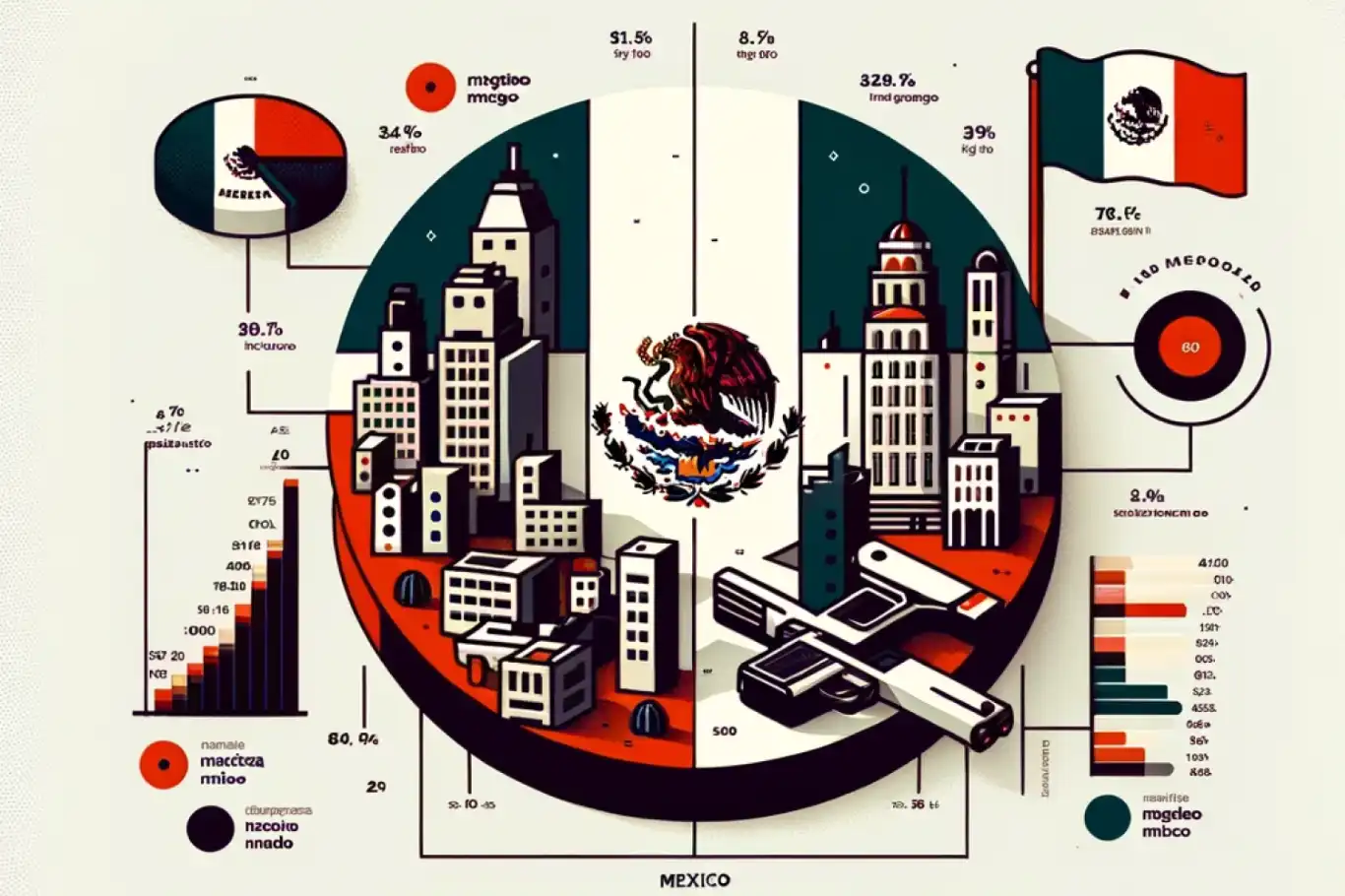
Navigating the landscape of safety in Mexico requires a nuanced understanding of its cities, particularly those identified for higher risks. Among the most critical insights is the fact that 9 out of the top 10 most dangerous cities globally are in Mexico, including tourist spots like Tijuana, Acapulco, and Ciudad Juárez. These cities are marked by challenges stemming from drug cartel activities, socio-economic inequality, and corruption within law enforcement and judicial systems.
For travelers, adopting safety measures such as situational awareness and staying informed about the specific conditions of their destinations is crucial.
This comprehensive article serves as a relevant resource, offering a transparent, updated list of Mexico's most dangerous cities, aiding travelers in making informed decisions to navigate their journeys safely.
Weather and Natural Disasters: Preparing for Mexico's Climate

Mexico's diverse climate means travelers may encounter everything from tropical storms to earthquakes. The hurricane season, running from June to November, particularly affects coastal areas, necessitating advanced planning and awareness of evacuation procedures.
Inland, Mexico is seismically active, with earthquakes posing a real risk. Staying informed through local news and adhering to safety guidelines during natural disasters can greatly reduce risks. Preparation, including knowing the location of shelters and having an emergency kit, is essential for a safe visit to Mexico, especially during peak seasons for natural events.
Hurricane Season in Mexico: Safety Tips and How to Access Essential Resources
Navigating hurricane season in Mexico, which stretches from June to November with the highest risks between August and October, requires thorough preparation for travelers looking to explore Mexico's rich culture and stunning landscapes safely. Key advice includes prioritizing accommodation and personal safety in flood-prone areas during hurricane alerts, and understanding regional impacts with the Atlantic coast experiencing peak activity around September 10th.
The resilience of the Mexican population, through sturdy infrastructure and community preparedness, offers valuable lessons in hurricane readiness. Essential preparations such as securing comprehensive travel insurance and staying informed about storm activity through reliable sources are crucial.
Flexible travel plans, with options for last-minute changes, can also mitigate the unpredictability of hurricane season, ensuring a safer and enjoyable visit to Mexico despite seasonal challenges.
For a comprehensive understanding of navigating hurricane season, including safety tips and activities suited for rainy days, exploring our detailed guide can provide travelers with the confidence to enjoy Mexico's beauty and vibrancy safely.
Spotlight Safety Analyses: Key Mexican Destinations
Cancun's Safety Check: Navigating Tourist Life with Confidence
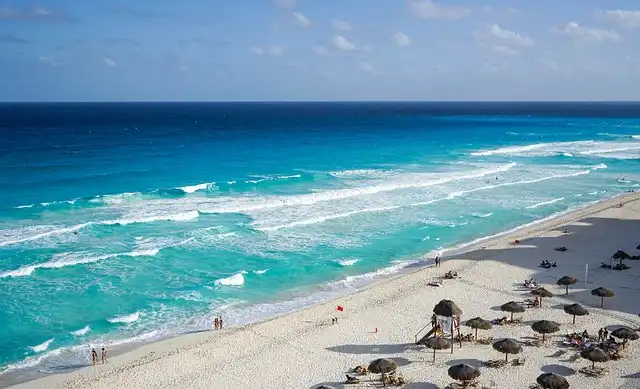
Cancun is widely considered a safe destination for tourists, thanks to its lower crime rate compared to many major cities. Despite media reports of criminal activities targeting tourists, the U.S. Government and local Mexican authorities have taken significant steps to ensure the safety of visitors.
With enhanced security in tourist areas, particularly the Hotel Zone, and increased police presence around Cancun International Airport, visitors can enjoy the beauty and hospitality of Cancun with peace of mind. Travelers are advised to exercise increased caution, especially outside the Hotel Zone, and remain vigilant to enjoy their stay fully.
For a detailed exploration of how to stay safe, from choosing accommodations to navigating transportation and avoiding common scams, our comprehensive article will equip you with the knowledge for a worry-free Cancun adventure.
The State of Safety in Mexico City for Visitors in 2024
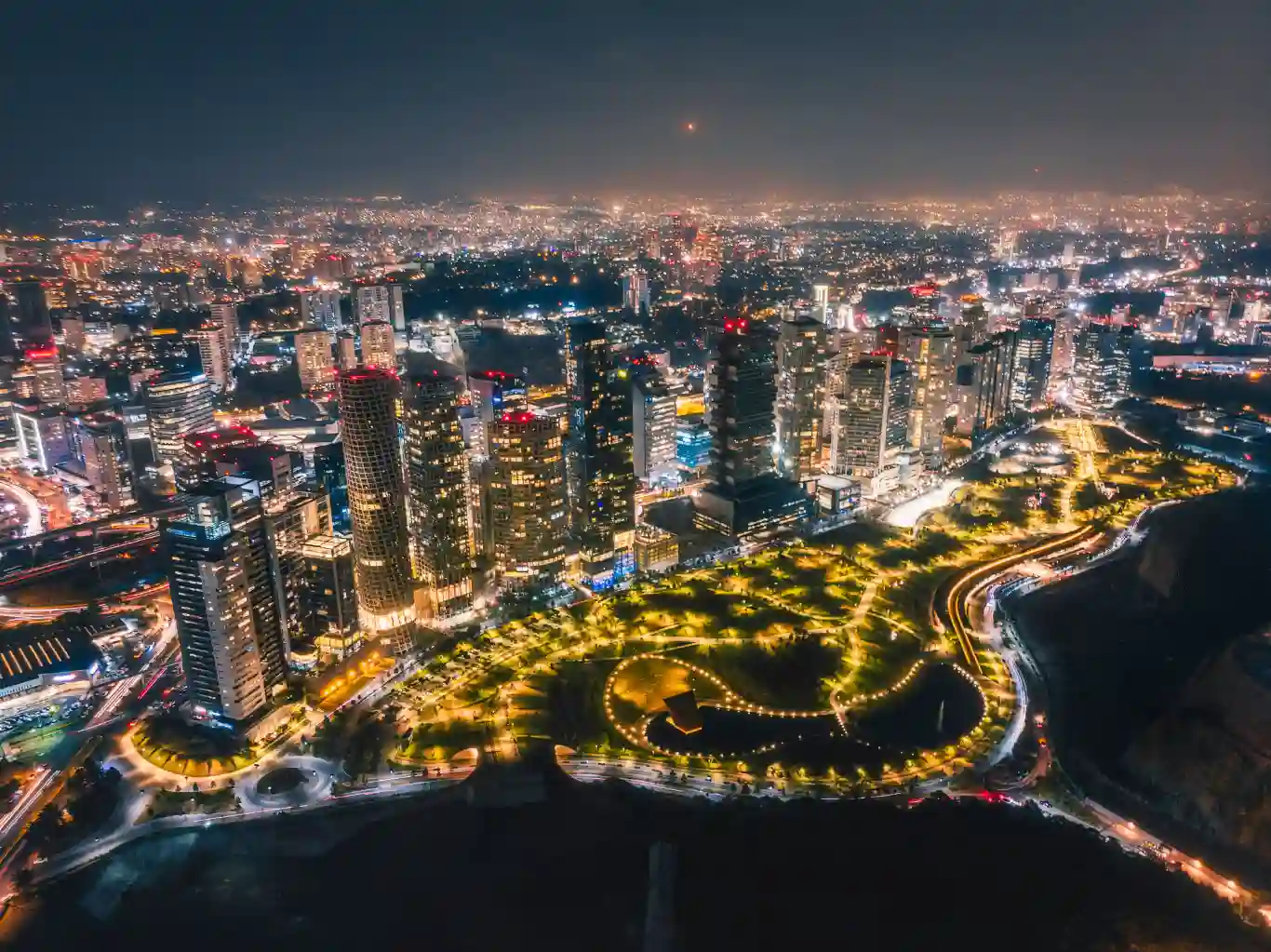
Mexico City in 2024 presents a nuanced safety landscape. While the city has seen improvements in safety due to increased police presence and efforts to curb high-impact crimes, concerns persist in certain areas, notably due to violent crimes which have prompted many locals to adjust their behaviors. However, for tourists, the primary risk remains petty theft.
The city's commitment to enhancing public security, coupled with informed precautions by travelers, significantly mitigates these risks. Areas requiring added vigilance include Tepito, known for its robbery rates, and Iztapalapa, where gang activity prevails. Yet, tourist-friendly neighborhoods like Polanco, Roma Norte, and Condesa offer a safer, welcoming environment.
Key strategies for a secure visit entail leveraging reputable transportation services such as Uber, exercising increased caution at night, and securing comprehensive travel insurance. Embracing these measures, along with staying informed about local scams and natural disaster protocols, will ensure a memorable and safe experience in Mexico City's vibrant cultural setting.
This guide aims to provide travelers with actionable insights for navigating the city's complexities with confidence. For an in-depth exploration of safety tips, cultural insights, and how to maximize your visit, diving into the full article will arm you with essential knowledge for a fulfilling trip to Mexico City in 2024.
Health and Emergency Protocols: What Travelers Need to Know
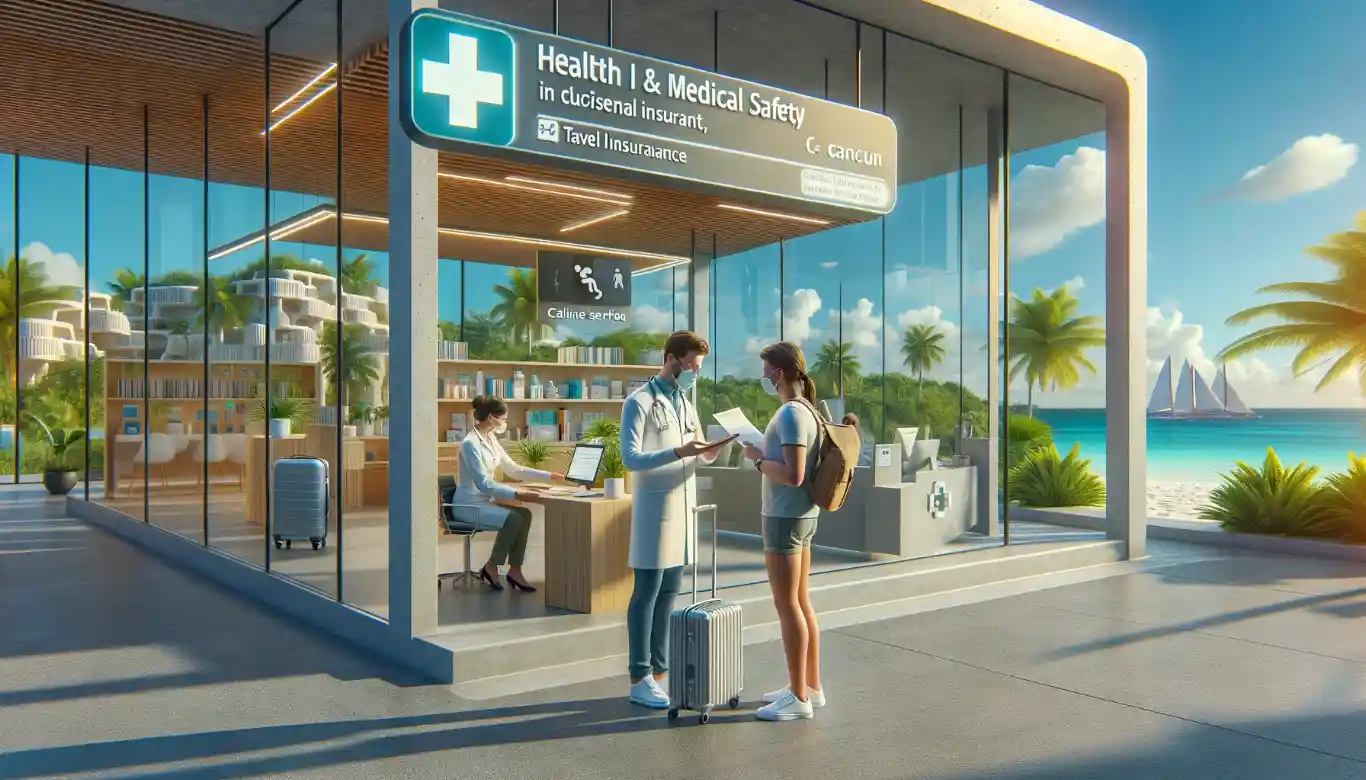
Health & Medical Advice for Travelers: From Water Quality to Local Healthcare Access
Travelers to Mexico should prioritize vaccinations against Hepatitis A and Typhoid, as these are common risks, especially through contaminated food or water. The country's vibrant street food culture beckons, but consuming bottled or purified water is essential to avoid waterborne illnesses.
Mexico's healthcare facilities are commendable, with well-equipped hospitals and clinics, especially in urban areas and tourist destinations. However, medical facilities vary in quality outside these regions, so carrying travel health insurance that includes medical evacuation is advisable.
Insect-borne diseases, such as dengue fever and Zika virus, are present, making insect repellent and protective clothing crucial, particularly during the rainy season when mosquito activity spikes. Altitude in cities like Mexico City can affect some travelers; gradual acclimatization and staying hydrated are key to avoiding altitude sickness.
Emergency Services in Mexico: How to Reach Federal Police and Secure Help
In Mexico, accessing emergency services is streamlined for efficiency. Travelers can dial 911 for immediate assistance, a universal number that connects to emergency services nationwide, including medical help, fire services, and the federal police. This service is available 24/7 and operators are trained to handle calls in multiple languages, catering to the needs of international visitors.
For incidents requiring specific attention from the Federal Police, travelers can also reach out directly through their hotline numbers or official websites. It's advisable to have the contact details of your country's embassy or consulate in Mexico, as they can offer support and guidance in emergencies.
Understanding how to efficiently use these services ensures travelers can quickly secure help in critical situations. In the Vigilios App you have quick access to vital emergency numbers in case you need them.
Cultural Insights: Understanding Mexico's Laws and Social Norms
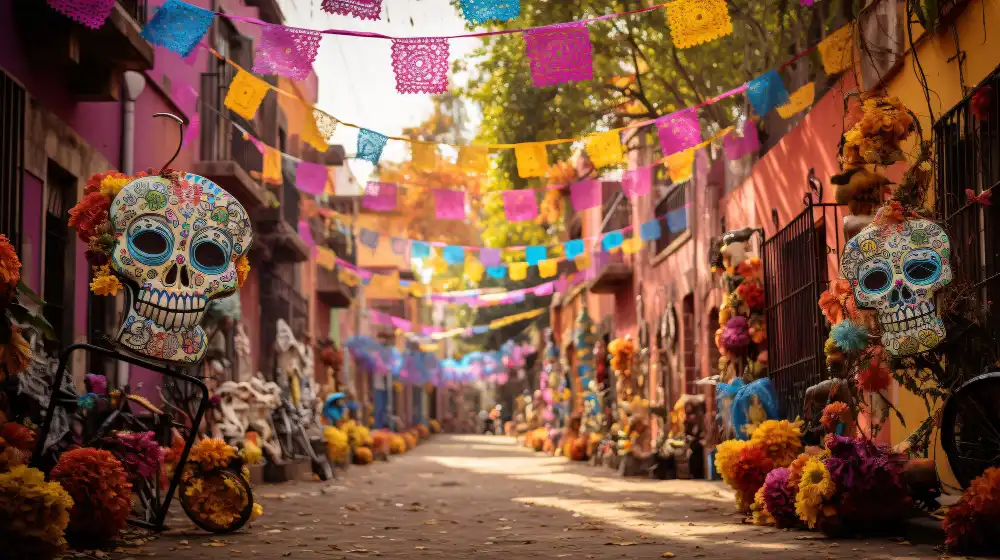
Travelers are subject to the local laws of Mexico. Violating local laws, even unknowingly, can lead to expulsion, arrest, or imprisonment. It's crucial for travelers planning to establish a business or practice a profession to seek information about necessary permits or licensing from local authorities.
Weapons laws vary by state in Mexico, but carrying weapons of any kind, including firearms, knives, and ammunition, is generally illegal for travelers. Illegal possession can result in severe penalties. The importation of firearms or ammunition without a permit issued by a Mexican embassy or consulate is strictly prohibited.
Drug possession and use are illegal in Mexico. This includes medical marijuana, with violations possibly leading to jail sentences or fines. Importing electronic cigarettes (vaping devices) and vaping solutions is also illegal, leading to confiscation and possible fines or arrest.
Leveraging Technology for Travel Safety in Mexico
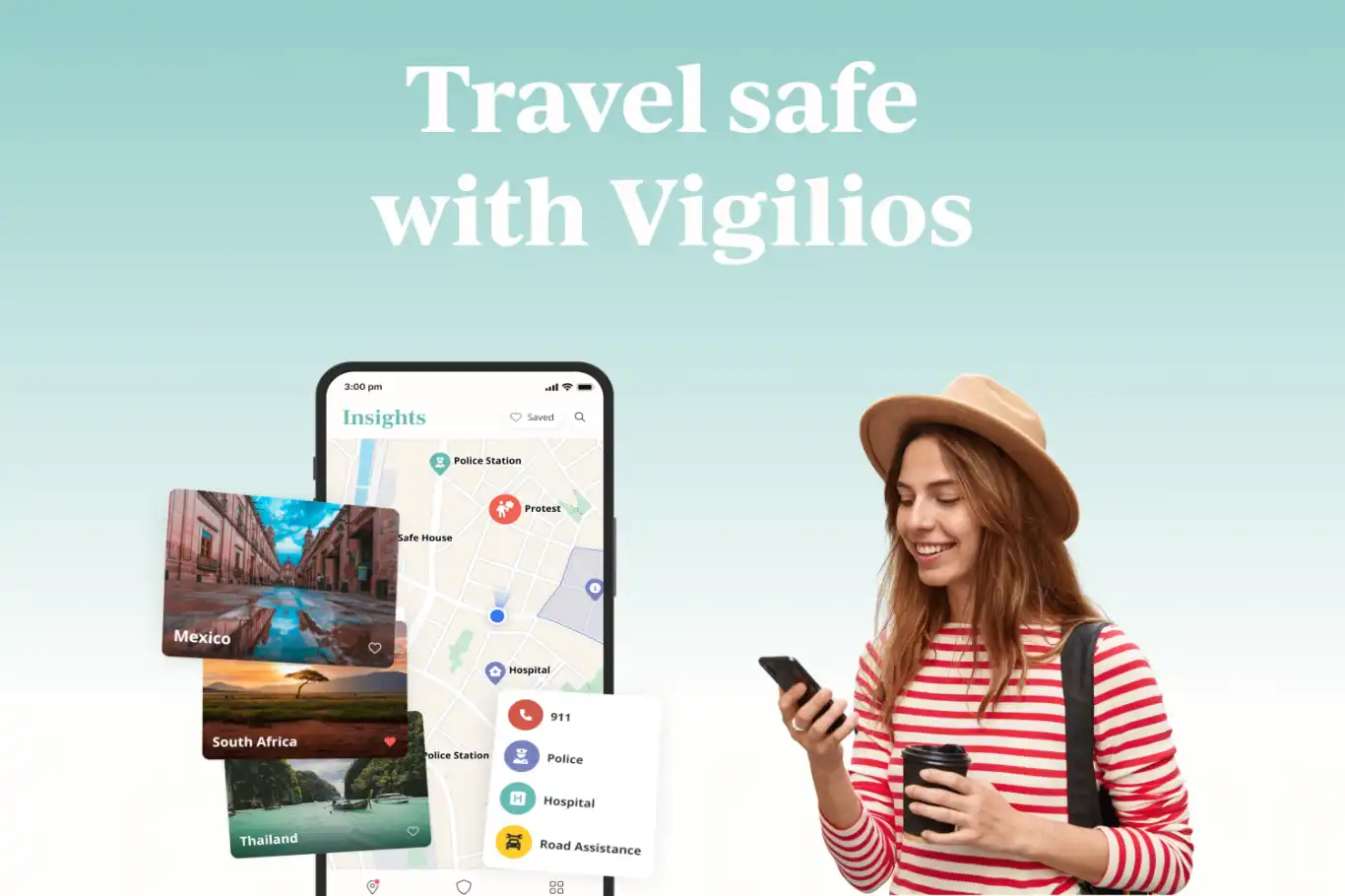
Vigilios Travel Safety App: A Traveler's Companion for Real-Time Alerts and Safety Insights
The Vigilios app is your essential travel companion in Mexico, offering real-time safety alerts and personalized safety tips. It’s designed to proactively prevent dangerous situations, providing not just location-based alerts but also tailored insights into your travel destinations across Mexico.
With Vigilios, travelers gain access to an intuitive, user-friendly platform that emphasizes a preventive approach to personal safety. This mobile-first solution equips travelers with crucial information right when they need it, revolutionizing personal safety in the digital age and ensuring a safer travel experience throughout Mexico.
Summary: Mexico as Your Next Destination for Adventure
Exploring Mexico presents a dichotomy of safety experiences, from serene, secure cities like Mérida to regions grappling with higher crime rates. Mérida, renowned for its safety, offers a haven for travelers seeking cultural immersion without the worry. On the other hand, awareness and caution are advised in areas marked by crime, necessitating a nuanced understanding of local security conditions.
Leveraging technology, such as the Vigilios Travel Safety App, enhances this awareness, providing real-time alerts and safety insights tailored to diverse locales across Mexico. As travelers navigate Mexico's rich tapestry of experiences, embracing both the beauty and the complexities ensures a journey that is as informed as it is memorable.
Frequently Asked Questions
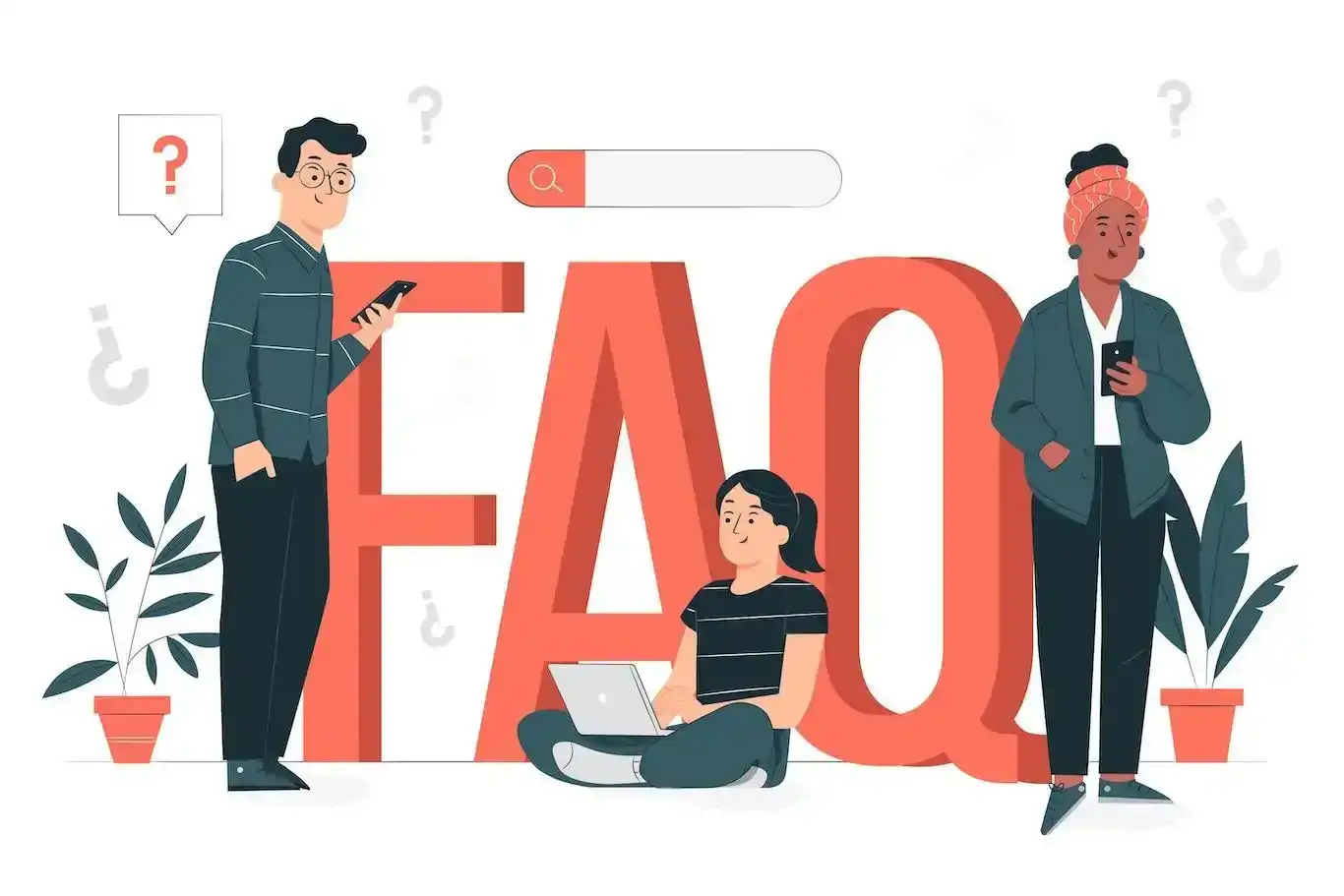
Is it safe to travel to Mexico?
Safety can vary greatly depending on the region. Some areas are very safe for tourists, while others have higher crime rates. It’s recommended to check current travel advisories, avoid known dangerous areas, and take standard safety precautions.
Do I need a visa to travel to Mexico?
Many visitors, including those from the United States, Canada, and the European Union, do not need a visa for stays of up to 180 days for tourism purposes. However, a valid passport is required.
Can I drink the tap water in Mexico?
Drinking tap water is generally not recommended. It’s safer to drink bottled or purified water to avoid waterborne illnesses.
Is Mexico City Safe in 2024?
Yes, Mexico City can be considered as relatively safe, and the U.S. Department of State does not have a travel warning against it. Therefore, it is generally safe to visit.
What should I do in case of an emergency?
Dial 911 for emergencies, which is the national emergency number in Mexico, offering access to police, medical assistance, and fire services.





